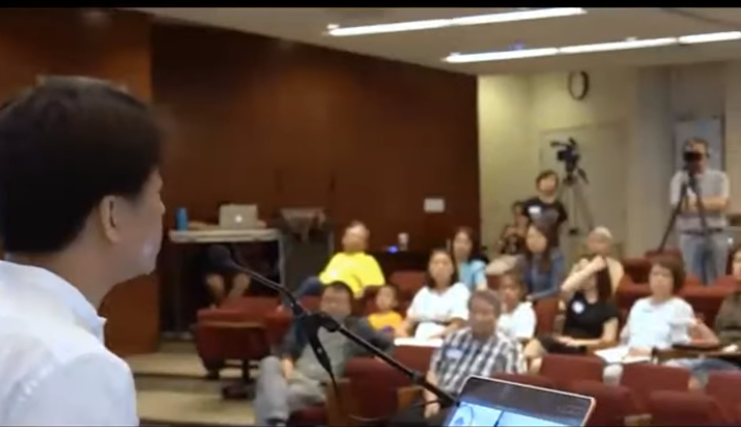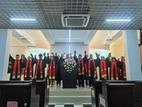Starting from late August, the twelfth Internet Mission Forum was held online for four Friday evenings, focusing on the church and evangelism in the post-pandemic era.
The forum lasted from August 28 to September 18, sharing four themes on Zoom about the church, artificial intelligence, education, and evangelism in the post-pandemic period.
In 2009, the late Rev. Wang (Thomas)Yongxin initiated the forum, which is held in August and September in the United States or Canada to promote missions on the Internet and new media.
This year it was held in a virtual form for the first-ever time due to the coronavirus pandemic. Twelve pastors, scientists, educators, and artists were the speakers, four for each theme.
In the first theme entitled “From Pace to Peace,” Job Huang or Huang Lei, senior pastor of Wuhan Root and Fruit Church, urged that we should integrate new media with traditional media outlets.
Since the coronavirus broke out in Wuhan on January 24, the church spread information on the pandemic situation and also God’s word to the churches locally and worldwide through multimedia, Zoom, and other media platforms.
Huang recalled the relief efforts during the 2008 Wenchuan Earthquake. His team gave four things to the victims: umbrellas, ponchos, flashlights, and short-wave radios. Many people became Christians through a Christian broadcasting station.
Rev. Ekron Chen, an associate professor from a seminary in Hong Kong, stated that online churches could be considered as one part of the ecumenical church. The four functions of church -- "worship, teaching, fellowship, and evangelism" -- could be performed virtually. Virtual sacraments were generally acceptable such as the Holy Communion.
In the second session on “AI: From Virtual to Virtue,” one of the highlights was the idea of the moral ethics of robots. Rev. James Hwang, executive director of the China Ministry of the Far East Broadcasting Associates, demonstrated that whether robots observed moral ethics should depend on their designers’ ethics. Designers should base on men as God’s image as artificial hands produced by a brain-machine interface could be used to heal Parkinson's disease and epilepsy.
In the third theme named "From O2O to OMO," Pastor Yuan Yixin, provost of Liangyou Theological Seminary, which provides theology through videos, shared how the Liangyou Radio Station developed. The ministry started with offering radio services then opened two official accounts on WeChat. Later the application of the seminary was developed. The audiences listened to the programs and later some of them who desired to become church staff received face-to-face training.
Elder Xu, a Christian entrepreneur said that it was the responsibility of the parents to educate their children, so they should not outsource their education to schools. Xu said that a collaborative offline/online education system is nationally promoted in Israel. For example, high school students are divided into groups of four and five, and a group meet weekly in a specific time for discussion, while they study online the rest of the time. Some students are groups leaders who are responsible for study tasks.
In the last theme “From Internal to Public”, Shu Yi, creator of The Road Design on Tik Tok, which makes short Christian videos, interpreted the beauty of Christian faith through design. One of the video series named “Why God Created the World” explores the meaning of creation through the perspective dialogues between animals and human beings. Another series entitled “God's Code” delivers the message through popular human body sciences and statistics.
The 2019 forum was conducted in Canada, featuring The Church and Evangelism in the New Media Times.
- Translated by Karen Luo












